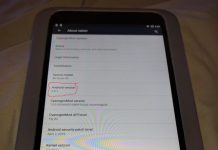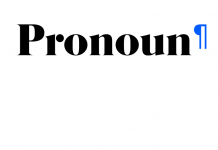 Engadget has a comment thread asking the question, “How would you change Barnes & Noble’s Nook?” It has received 103 comments as of the time I am posting this.
Engadget has a comment thread asking the question, “How would you change Barnes & Noble’s Nook?” It has received 103 comments as of the time I am posting this.
Crain’s New York Business has yet another article about the recent publishers-vs-Amazon event. For the most part, it covers what we already know, but it has some interesting quotes.
“What we see in the data is that as you go higher than $10, sales decrease quite rapidly,” says Michael Tamblyn, vice president of sales at e-bookstore Kobo. “It’s going to be an interesting challenge to introduce those books at higher price points.”
The MobyLives blog at Melville House Publishing talks about an article by Michael Cader, critical of the New York Times article we covered a few days ago about consumers being turned off by higher e-book prices. It does not link to Cader’s piece (perhaps it is not posted in a source that can be easily linked), but quotes a good portion of it.
Cader calls the Times article “unsubstantial,” and fears that “since it runs in the Times, some people will automatically take it seriously, despite the anecdotal reporting and absence of any data.” He urges industry representatives to speak up to correct these misconceptions, and goes on to make a number of other points readers may find controversial.
* People who can afford an ereading device can afford all proposed ebook prices
Of course they prefer to pay less, and they may even forgo purchases or gravitate to less expensive product. But whenever the owner of a $300 product says they “can’t afford” to pay three dollars more for something, what they mean is “I really prefer not to.”
Speaking of controversial articles, the Indiana Daily Student has an editorial speaking out against e-books. It makes the standard appeal to book-as-fetish-object, complains about people too lazy to carry physical books around, wonders why high movie ticket prices aren’t drawing the same ire as e-books, and so on.
E-books are just another step in the corporate giants’ plan to exploit consumerism and make electrical sockets the new crack-cocaine. And the most depressing part about it is that all I can do to stop it is rant for 500 words.
You heard it here first.


































I resent the way people assume that purchasing an ereader means somehow I’ll role over on pricing. Price elasticity on ebooks is close to zero for me. I bought an ereader to get away from overpriced dtb not to pay for overpriced econtent.
Quote: “… the Indiana Daily Student…. complains about people too lazy to carry physical books around.”
It’s not just laziness. I sometimes write in a public library and groan when I see Catholic middle-school students come in with packs stuffed with what must be 30 pounds of books. Any time a teacher gives homework in a book, that book, heavy enough for a year of studies, has to go home and come back. That makes no sense.
For the sake of our kids’ backs, we need a sturdy, inexpensive ebook reader and etextbooks.
Do publishers really want me buying just *one* $15 e-book?
I’ve only owned a reader for a couple of years, and already I own a hundred or so e-books that I’ve bought and paid for. Had I paid $15 each, that $1500 would already dwarf the price of the reader. Over twenty years, I’d be spending $15,000.